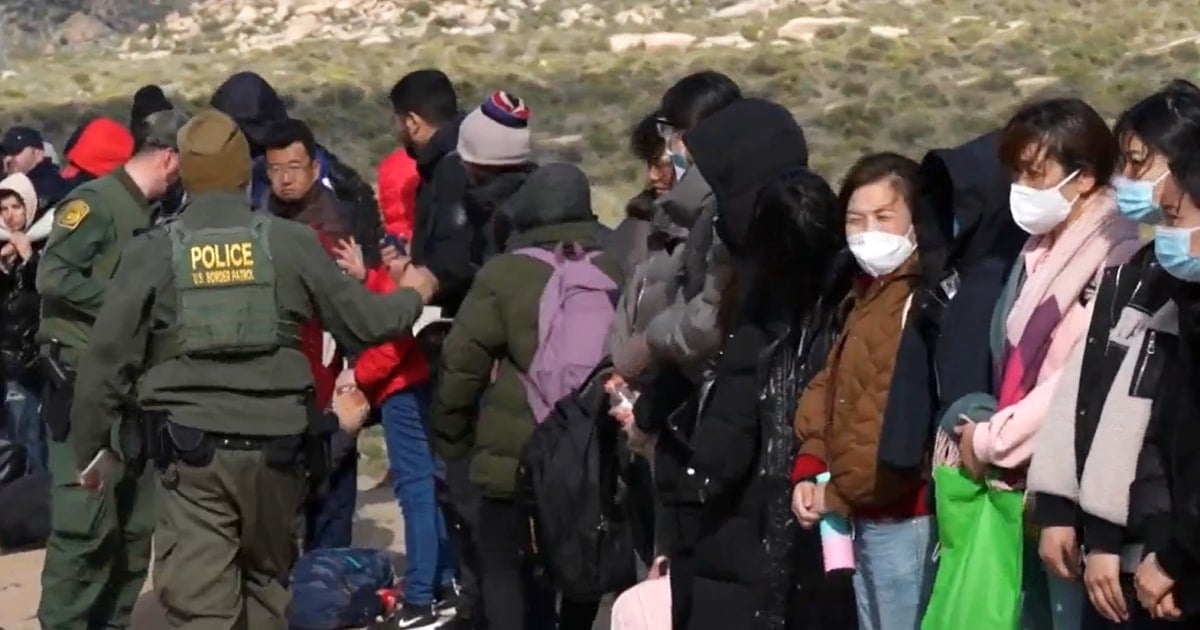“This is not a U.S.-Mexico border problem. This is now a worldwide issue,” a former Homeland Security official said.
Shortly after dawn, in the desert east of San Diego, a group of migrants huddled around a campfire. They had come together on this desolate stretch of the U.S.-Mexico border from four different continents: Young men from India shared snacks with women from Nicaragua, while a man from Georgia stood next to a family from Brazil.
A volunteer with a local humanitarian group hauled over a beverage cooler filled with papers: legal information printed in 22 different languages. As he handed them out — in Gujarati, Spanish, Portuguese and Russian — he said, “Welcome to the United States.”
…
An NBC News analysis of newly released data from the Department of Homeland Security shows a fundamental shift. Before the pandemic, roughly 9 in 10 migrants crossing the border illegally (that is, between ports of entry) came from Mexico, Guatemala, Honduras and El Salvador — the four countries closest to the border. Those countries no longer hold the majority: As of 2023, for the first time since the U.S. has collected such data, half of all migrants who cross the border now come from elsewhere globally.
…
Experts and U.S. government officials attribute this explosive growth in large part to the pandemic, which provoked mass migration around the world, adding serious challenges to an immigration system already beleaguered by a decade of severe backlogs. Another major factor is the massive expansion of transcontinental smuggling networks, itself fueled by widespread digital technology.



Yeah, even Homeland Security acknowledges it too:
But guess who in Congress don’t want to change that?
These guys:
Republicans in Congress have been manufacturing the border crisis for a long time now. They know that naturalized immigrants statistically vote Democrat, and can affect census data prior to naturalization. The president can’t enact immigration reform with an Executive Order, only control the flow at the border. So a Democrat President opens the border, to be used as designed, in order to rely on our immigration system. Our systemic failures cause overflow in border and sanctuary cities, putting pressure on the President to detain or turn away by Executive Order, and the cycle repeats.